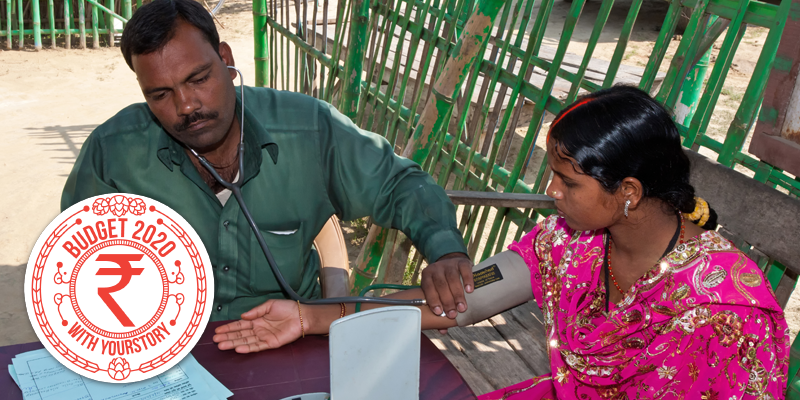Budget 2020: Government lays out plans for aspirational India, to focus on rural development, education, water, and sanitation
In this year’s Budget, Finance Minister Nirmala Sitharaman focussed on an aspirational India, aiming to develop rural areas, improve education, provide water, and effectively manage waste.
For years, rural areas in India have suffered greatly when it comes to the provision of clean water supply and education. However, in the last two years, the Indian government has tried to turn the situation around with its various schemes.
Finance Minister Nirmala Sitharaman on Saturday while presenting the Union Budget, highlighted important advancements in areas relating to water, health, and education. She called this approach ‘Aspirational India’, to strive for the betterment of society.

Here are some of the announcements made by the Finance Minister in the Budget this year:
Health
The government on Saturday announced that it will set up more hospitals in the country through public-private partnership (PPP) mode in Tier-II and III cities. For this, it will set up a viability gap funding.
The Finance Minister allocated Rs 69,000 crore, inclusive of Rs 6,400 crore already directed towards the Pradhan Mantri Jan Arogya Yojana. The scheme will be implemented in 1,000 more hospitals in India.
The allocation for the sector was increased this year, as compared to Rs 62,659 crore allotted last year.
Further, Nirmala Sitharaman stressed on using artificial intelligence (AI) and machine learning (ML) in the healthcare sector, as part of the Ayushman Bharat Scheme, to help acquire data on chronic illnesses. Proceeds from the taxes on medical devices will be used to support the health infrastructure, she added.
She also proposed to expand the ‘Jan Aushadi Kendra Scheme’ to all districts, offering 2,000 medicines and 300 surgical equipment by 2024.
She added that the Mission Indhradhanush and Intensified Mission Indradhanush have helped boost the routine immunisation coverage for 12 diseases with five new vaccines.
She elaborated on the Fit India Movement as a vital part of the fight against non-communicable diseases.
The Finance Minister pledged to eradicate tuberculosis by 2025 in India, through the launch of a new campaign, ‘TB Harega, Desh Jeetega.’
Water and sanitation
To provide ‘water security for all by 2024’, the government has proposed Rs 11,500 crore for its Jal Jeevan Mission, of which Rs 3.6 lakh crore has already been approved to provide piped water supply to every household.
Further, the funds allocated will be used to augment local water resources, recharge existing sources, promote water harvesting, and desalination. Cities with over one million population will be encouraged to meet this objective during the current year.
It has also proposed comprehensive measures for 100 water-stressed districts.
For sanitation and hygiene, the Finance Minister allocated Rs 12,300 crore for the ‘Swachh Bharat Mission’, that promotes effective liquid and waste management in India.
Further, the government will start an Open Defecation Free (ODF)-plus scheme to sustain the current ODF mission.
About Rs 2.3 lakh crore will be provided towards irrigation and rural development, and more schemes will be started for liquid and greywater management, solid waste collection, source segregation, and processing.
Education
The Finance Minister stressed on improving the educational institutions in India and the quality of education provided, saying that a new education policy would be announced soon.
This year’s Budget allocated Rs 99,300 crore for quality education and Rs 3,000 crore for skill development. The government will also be introducing foreign direct investment (FDI) in the education sector.
Further, full-fledged online education programmes were also proposed for the less privileged. A degree-level online education programme was also proposed, which will be offered by the top Indian institutes.
Nirmala Sitharaman also said that more job-oriented courses will also be added. By 2021, more internship opportunities and diploma courses will be available for the Indian youth, she added.
She further said that India aims to have the largest working population in the world by 2030.
Last year, the education sector was allocated Rs 93,847.64 crore, the health sector received Rs 62,659.12 crore, and the water and sanitation sector received Rs 9,994 crore.
(Edited by Suman Singh)










